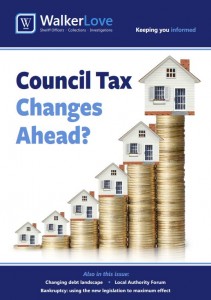 Local Authority Briefing Summer 2017
Local Authority Briefing Summer 2017
This edition focuses on the Local Authority Forum which was held at the end of May 2017.
Click here to download a digital pdf
We were delighted to be joined by Neale Tosh and Adam McCabe from Brodies, Fergus Walker from Argyll & Bute Council and Alex Reid from the Accountant in Bankruptcy.
Each of the guest speakers provided a range of insights and informative talks which the Local Authority delegates discussed during the workshop discussion session.
Issues discussed at the Forum and featured in this edition include:
- Update on the proposed changes to the Prescription and Limitation (Scotland) Act 1973
- The recent AiB consultation on Diligence, trends in bankruptcy and a guest article from Fiona Wilson, DAS team leader, AiB which covers the AiB’s engagement strategy.
- Argyll & Bute Council’s strategy to tackle the housing shortage in the area
- Walker Love’s new west coast diligence centre
- LA Forum – delegates views on the impact of the increase in Council Tax charges
Click here to download an interactive pdf to read on your PC, tablet or mobile.


